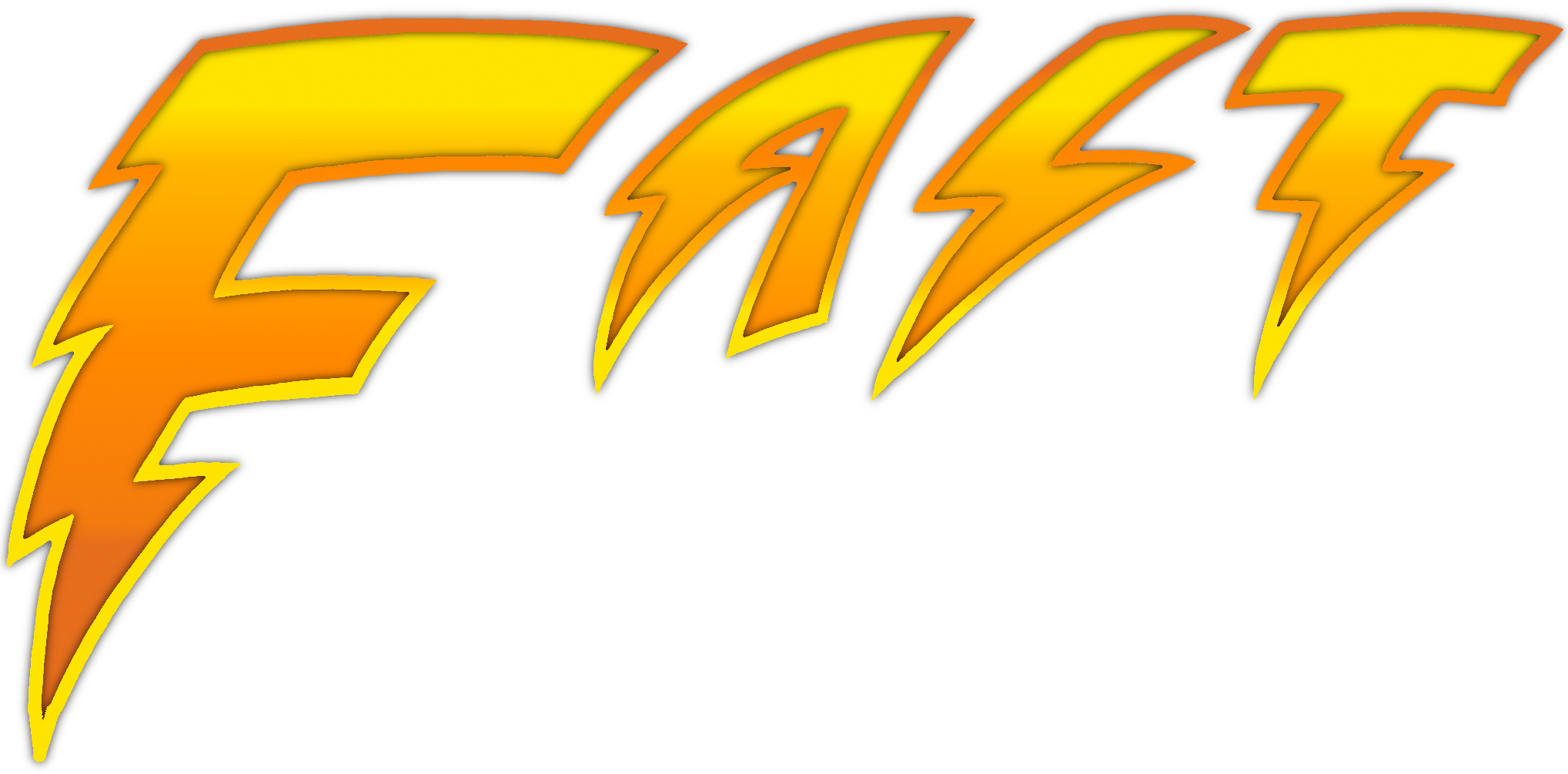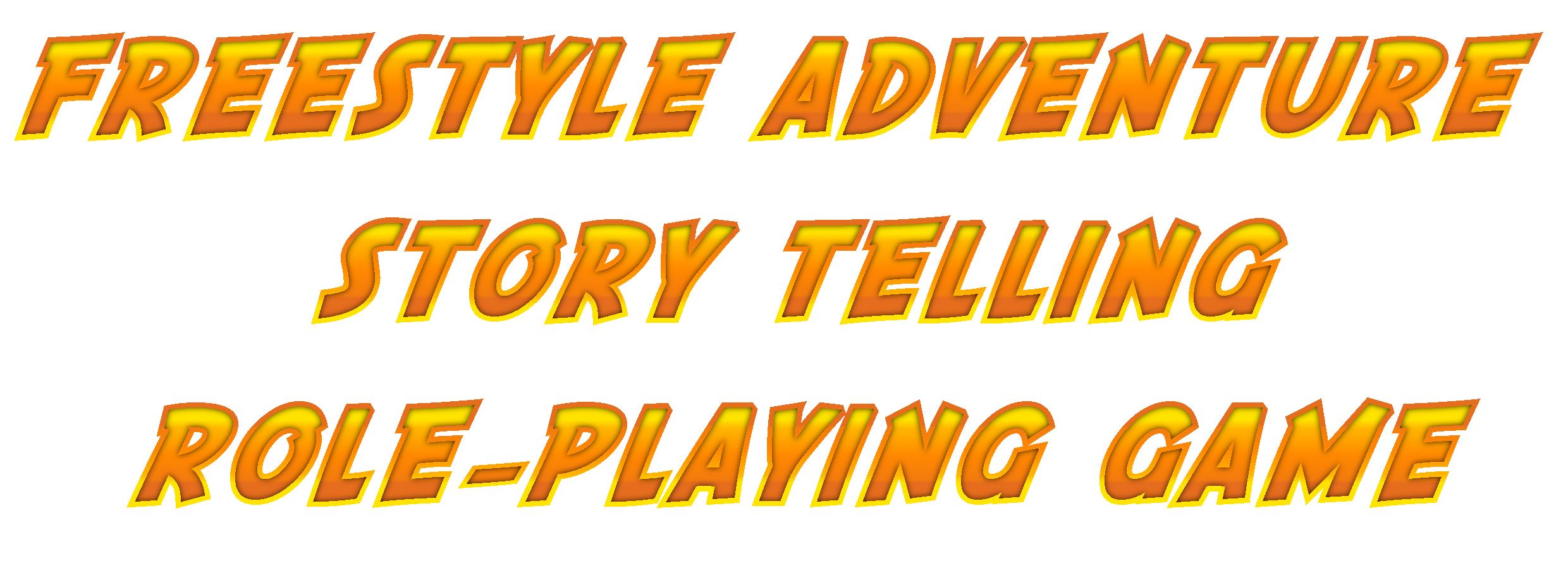
Freestyle Adventure Story Telling RPG Copyright 2002, 2007 by FAST Games.
All materials and artwork are the intellectual and artistic properties of FAST Games.


About FAST
Games
‘There's got to be a better way to
game!’
For the next year, we built a framework around our ideal RPG. The task turned out
to be a lot more difficult than what we’d thought, but we kept at it. Like Grand-Dad
always said - - if it ain’t worth fighting for, it ain’t worth having. We play-tested
every kind of rule that came to mind and we evaluated it according to our 5-point
checklist. It didn't matter how neat, clever, or creative the idea was - - if it
wasn’t easy to understand or slowed down the game, it was modified or dropped entirely.
A lot of way-cool stuff wound up getting cut because it did not contribute to getting
us the game we wanted.
We decided to call our home-grown system Freestyle Adventure Story Telling, or FAST
for short. “Freestyle” because it was rules-lite. “Adventure” because we wanted
it to be exciting and quick-paced. “Story Telling” because our gaming group had
grown away from the hack-n-slash dungeon crawls and linear-plotlines; we were into
developing specific stories and adversaries around the characters’ personal backgrounds
and goals, with the scenarios tailored accordingly. “FAST” because we just like
acronyms.
One year later, we had the core rules ironed out and we threw FAST to the wolves
at the very same convention where it had been conceived. The response was encouraging
and we got a lot of good feedback. We took what we learned back home and converted
all our existing campaigns to FAST. We created some new ones to really put FAST
through the paces. Over the next three years, we gave FAST a workout, at home and
at the gaming conventions. We expanded the rules when appropriate, looked for kinks,
and made adjustments until we’d gotten what we were looking for.
Just in time for Egyptian Campaign in Carbondale, IL, the 1st edition of FAST went
into print May 2002. Continued play-testing over
the next five years led to some minor enhancements and FAST 2nd edition made its appearance at Egyptian Campaign
in March 2007.
Our motivation at FAST Games is a passion for RPGs. We all have full-time jobs and
do not expect FAST will ever make us rich. Our mission is to produce high-quality
gaming materials at the lowest possible cost. We have no stocks to sell, we answer
to no board of directors, and we collect no salary. We strive to keep our products
as close to at-cost as humanly possible. FAST is a labor of love for us and it is
our hope that you will enjoy playing FAST as much as we do.
Those were my exact words to my small gaming group as we trudged back to our hotel
room in Springfield, Missouri on February 21, 1998. We'd just spent six hours at
a VisionCon gaming table playing a popular universal RPG we all knew and loved.
It had been a grueling session, but the heroes had emerged victorious. So what’s
the problem, you ask?
Well, the final confrontation between 8 superheroes and as many supervillians had
taken less than 10 combat rounds, but it had lasted nearly 3 hours. At least one
player was able to make an off-site run for fast food (in mid-combat!) and still
make it back to the table before his character's next action came around. My artist
brother had enough free time to polish off a couple of full-sized pencil sketches
- - his artwork adorns this website, so you can see they were not just stick figures.
The time consumption hadn’t been a matter of slow players or an unprepared GM -
- far from it. It’s just that the game system in question was so heavily rule-laden
that doing *anything* took a long time and involved a lot of dice-rolling. I had
been playing RPGs for years, but I couldn't help wondering why someone hadn’t come
up with a full-featured game system that didn't bring game-play to a grinding, screeching
halt when it came to combat?
Another thing began to annoy me. If you have played RPGs for very long, you have
no doubt run into the situation where random dice rolls gave you a mediocre character.
Worse still, you may have tried to build a character within a certain point-limit,
only to be disappointed when you couldn't buy what you really wanted for a well-rounded
character. Ever seen a Vulcan Starfleet crewman who lacked all the essential scienific
skills, a Chinese monk who couldn't afford to buy the Climbing skill, or a psionic
hero who had dangerously low physical stats because his mental powers were so expensive?.
I have… in my own gaming group.
There were some simple RPG systems I really enjoyed playing, but I couldn't use them for other campaigns. The rules were tailored to a specific genre and were not
easily translated to another without major changes or the loss of what made that
system so appealing to me. RPGs geared toward fantasy swords & sorcery typically
did not cover hard science fiction. Nor did modern espionage RPGs handle four-color
comic book superheroes very well.
On the other hand, the all-encompassing universal systems I played were so complex
that it took a while to learn all the rules and mechanics. The casual, social gamers
in my group would never invest the kind of time required to master those systems.
And a large portion of game time was spent consulting tables and looking up obscure
rules - - a breeding ground for rules-lawyers everywhere. Combat was a slow and
tedious endeavor at best.
Over that VisionCon weekend in 1998, my gaming group discussed our wish-list for
the ultimate RPG. It had to
include fast combat, simple rules, easy character creation,
cover all genres, and be scalable to handle everything from normal humans to superhuman
powerhouses. All the games we played had one or two of those elements, but none
delivered on all five. Therein lay our frustration and inspiration.


